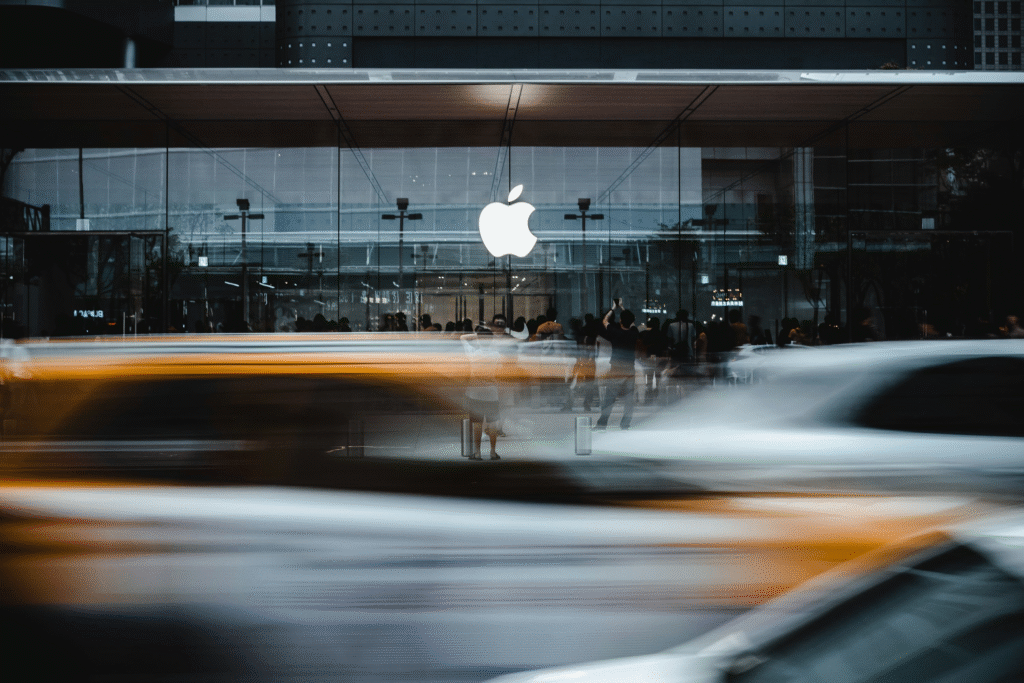Apple has lost a lot of money in court after being denied the right to appeal a verdict that said the corporation abused its dominating market position by charging app developers too much in fees. The decision is another big problem for the software giant, which has been under fire for a long time for its App Store prices and business methods.
The Competition Appeal Tribunal (CAT) made the decision that Apple unlawfully limited competition and charged “excessive and unfair prices” through the commissions it imposes on app sales and in-app purchases. Apple asked the tribunal for permission to appeal the verdict, but it was denied. The only thing the corporation could do was go straight to the Court of Appeal.
This decision could have big effects on money. Apple may have to pay more than 1 billion pounds in damages after being accused of charging developers too much for almost ten years. Lawyers for Rachael Kent, the scholar who filed the action, said the damages were about 1.2 billion pounds, including interest, for the time between October 2015 and February 2024.
Kent, the leader of the fight against Apple’s actions, called the case a long road to justice. “This case has been a marathon, not a sprint, but we are one step closer to App Store users finally getting their money back,” she said in a statement. Her lawyers said that Apple’s commission arrangement made things more expensive for developers, which ultimately made things more expensive for customers because app pricing went up.

The tribunal’s decision backed up the contention. The court said that app developers were charged too much since the discrepancy between a fair 17.5% commission rate and Apple’s usual 30% fee was too high. The tribunal also found that almost half of this extra charge was passed on to customers. This means that both developers and users had to pay for Apple’s rules.
Apple, on the other hand, has vigorously defended its App Store mechanism. A company representative said in a statement that the verdict “takes a flawed view of the thriving and competitive app economy” and doesn’t see all the benefits that the App Store gives to developers and customers. Apple has asked for 21 days to file an application with the Court of Appeal, which shows that the corporation is not ready to give up yet.
This case has effects that go well beyond Apple. For years, the company’s App Store fees have been a big part of worldwide discussions about how much power big tech companies should have over their digital ecosystems. Apple has always said that its commission helps pay for important services like app review, security measures, and developer tools, which make sure that consumers have a safe and dependable experience.
Some people, on the other hand, see the App Store as a closed ecosystem where Apple has too much power. They say that developers have to use Apple’s payment mechanism and can’t provide cheaper options or direct transactions outside of the platform. Regulators and consumer activists say that this limits competition and raises prices across the board.
Apple is having the same problems in other parts of the world as it is in this one. Regulators in the EU and the US have looked into and questioned Apple’s economic strategy, especially when it comes to antitrust rules. The Digital Markets Act (DMA) has put further pressure on Apple and other big tech companies in Europe to make their platforms more accessible to everyone. In the meantime, the continuing legal dispute between Apple and Epic Games in the US continues to bring up the same basic question: is Apple’s control over app distribution reasonable or monopolistic?
The stakes are huge when it comes to money. A damages bill of more than a billion pounds would not break Apple, but it would be a symbolic win for developers and customers who have long said that the App Store’s structure gives Apple too much power. The corporation makes billions of dollars a year from commissions, which is one of its most profitable sources of income besides selling hardware. If Apple is compelled to lower its fees or adjust its policies, this might change how it makes money in the future.
The case also brings up crucial considerations regarding fairness in the online economy. Is it fair for a firm that makes and runs a digital platform to determine all of the financial terms for it? Or should there be limits that stop big companies from taking advantage of their power to hurt smaller ones? The tribunal’s decision shows that authorities are leaning toward the latter, which means they are taking a harder stance on making sure that digital marketplaces are free and competitive.
Apple’s story is complicated when it comes to business ethics. The company’s closed ecosystem has definitely made a safe and smooth space that users can trust. But that same framework makes it harder to be flexible and compete. Apple’s commission arrangement takes a big chunk out of many developers’ earnings, especially smaller ones, and makes it tougher for them to stay profitable. On the other hand, consumers wind up paying the price in the form of higher pricing or less innovation.
The tribunal’s decision could make other developers speak out or seek compensation, which would have an influence on the whole software industry. If higher courts agree with the verdict, it might make Apple and other digital gatekeepers reassess how they distribute and price apps. It could also encourage governments around the world to create policies that make online marketplaces more fair and open.
Even though the law didn’t go their way, Apple is nonetheless committed to defend its actions. The company’s answer shows that it thinks its App Store approach has led to new ideas by letting developers reach people all over the world while keeping privacy and safety high. Apple doesn’t think the fees are unjust; they are just the price of keeping quality and trust.








